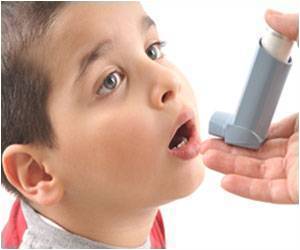A new study has shown that developing antibodies to cockroach and mouse proteins is linked to a greater risk for wheeze, hay fever, and eczema in preschool urban children as young.
A new study has shown that developing antibodies to cockroach and mouse proteins is linked to a greater risk for wheeze, hay fever, and eczema in preschool urban children as young as three years of age.
The study, conducted by researchers at the Columbia Center for Children's Environmental Health (CCCEH) at Columbia University's Mailman School of Public Health, is the first to focus on the links between antibody responses to cockroach and mouse proteins and respiratory and allergic symptoms in such a young age group."These findings increase our understanding of the relationship between immune responses to indoor allergens and the development of asthma and allergies in very young children," said lead author of the study, Kathleen Donohue, MD, fellow in Allergy and Immunology at Columbia University College of Physicians and Surgeons.
During the study, the researchers found evidence that the likelihood of developing wheeze, hay fever, and eczema in preschool urban children was significantly increased among children who were exposed to antibodies of both cockroach and mouse allergens.
This study is part of a broader multi-year research project launched in 1998 by CCCEH that examines the health effects of exposure of pregnant women and babies to indoor and outdoor air pollutants, pesticides, and allergens.
The Center's prior research findings have shown that exposure to multiple environmental pollutants is associated with an increase in risk for asthma symptoms among children.
These latest findings contribute to a further understanding of how the environment impacts child health.
According to the researchers, a prospective follow-up of this birth cohort will help determine whether the development of anti-cockroach, anti-mouse immunoglobulin (Ig) E by age three is associated with impaired lung function and/or persistent asthma.
Source-ANI
LIN
 MEDINDIA
MEDINDIA



 Email
Email










